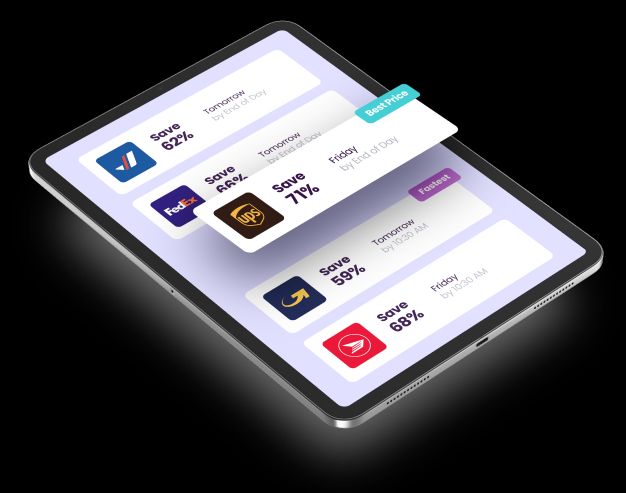
Jul 17, 2017 • by Dan Allard
Discount Shipping: Reduce Your Expenses And Ship Smarter
Should your business offer free or discounted shipping to its customers? If so, how can you do it while protecting your margin and increasing your profits?


by Nadine Hogan
Sep 15, 2014
Key Points

 Delayed shipments? Ain’t no-one got time for that!
Delayed shipments? Ain’t no-one got time for that! I have a friend (Mark) who lives in New York City. As if that didn’t make me jealous enough, this highly talented friend makes jewelry for a living; jewelry that he pieces together from his travels around the globe. Are you green with envy too?
As you can imagine, Mark’s jewelry line does well. So well, in fact, that I no longer look for the ‘friend freebies’ and now support him by gifting these one-of-a-kind pieces whenever I can. Last year, when my husband’s birthday rolled around, I happened to be on Mark’s website when I saw the perfect gift. A necklace so unique that I didn’t even have time to call my friend, I ordered it on-line before anyone else could.
 A few days later, I remembered to call Mark and thank him for this gift I was so anxious to give. Except, I couldn’t thank him because it still hadn’t arrived. I was eager to see the necklace in person and when it became clear it was way later than it should have been, Mark and I both became concerned.
A few days later, I remembered to call Mark and thank him for this gift I was so anxious to give. Except, I couldn’t thank him because it still hadn’t arrived. I was eager to see the necklace in person and when it became clear it was way later than it should have been, Mark and I both became concerned. Although I was frustrated that my husband’s birthday came and went without being able to gift him the jewelry, Mark was even more frustrated because this is his livelihood. I was an understanding friend, but most of his orders go to strangers who are less forgiving (especially if it’s their first purchase and they are not comfortable with the supplier).
As Mark began to search for the shipment it became clear that the trip from New York City to Ottawa was disrupted at the border. Even more frustrating was the knowledge that it was a simple mistake made on the commercial invoice (CI) that had cost him all of this worry and confusion. Though he knew he had to provide a commercial invoice, given he was shipping a product outside of the United States, he neglected to take the time to ensure everything was filled out as accurately and clearly as possible. Although this extra step is time consuming, it’s necessary because customs officials need this information to help them determine two main things:
Mark learned a very important lesson that day. The commercial invoice is IMPORTANT. Very important. The information on this document can either help or hinder you – which would you choose? That answer is as clear as Mark’s commercial invoices going forward. As a business owner, there is no question that customer service can make or break you. A little more time to focus on the commercial invoice and a lot less time trying to win back unhappy customers – that Mark’s new motto anyway!
What about you? Can your business/small business afford border delays? Do you have time to chase missing shipments? If not stay tuned. The commercial invoice is important enough to garner two blog posts from us. We will break it down in more detail next week.
Breaking Down the Commercial Invoice
Jul 17, 2017 • by Dan Allard
Discount Shipping: Reduce Your Expenses And Ship Smarter
Should your business offer free or discounted shipping to its customers? If so, how can you do it while protecting your margin and increasing your profits?

Jul 1, 2017 • by Dan Allard
5 Ways Small Businesses Can Save Money On Shipping Expenses
Shipping - the word alone can give many small business owners a headache. It's no secret that domestic and international shipping make up the largest expense for small businesses. So what can you do to bring that down?

Sep 19, 2014 • by Nadine Hogan
Breaking Down the Commercial Invoice
The commercial invoice is one of the most important export documents. How you complete it can affect how much duty and tax you pay and can also affect how long it takes to clear at the border.